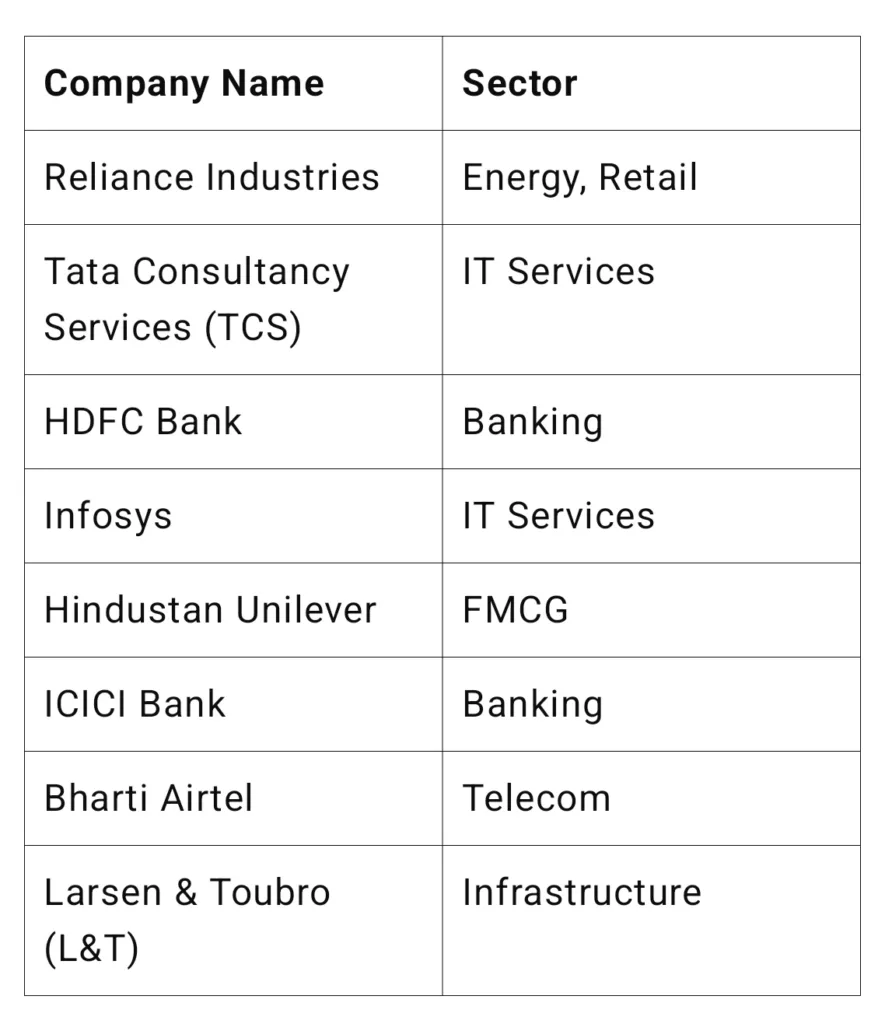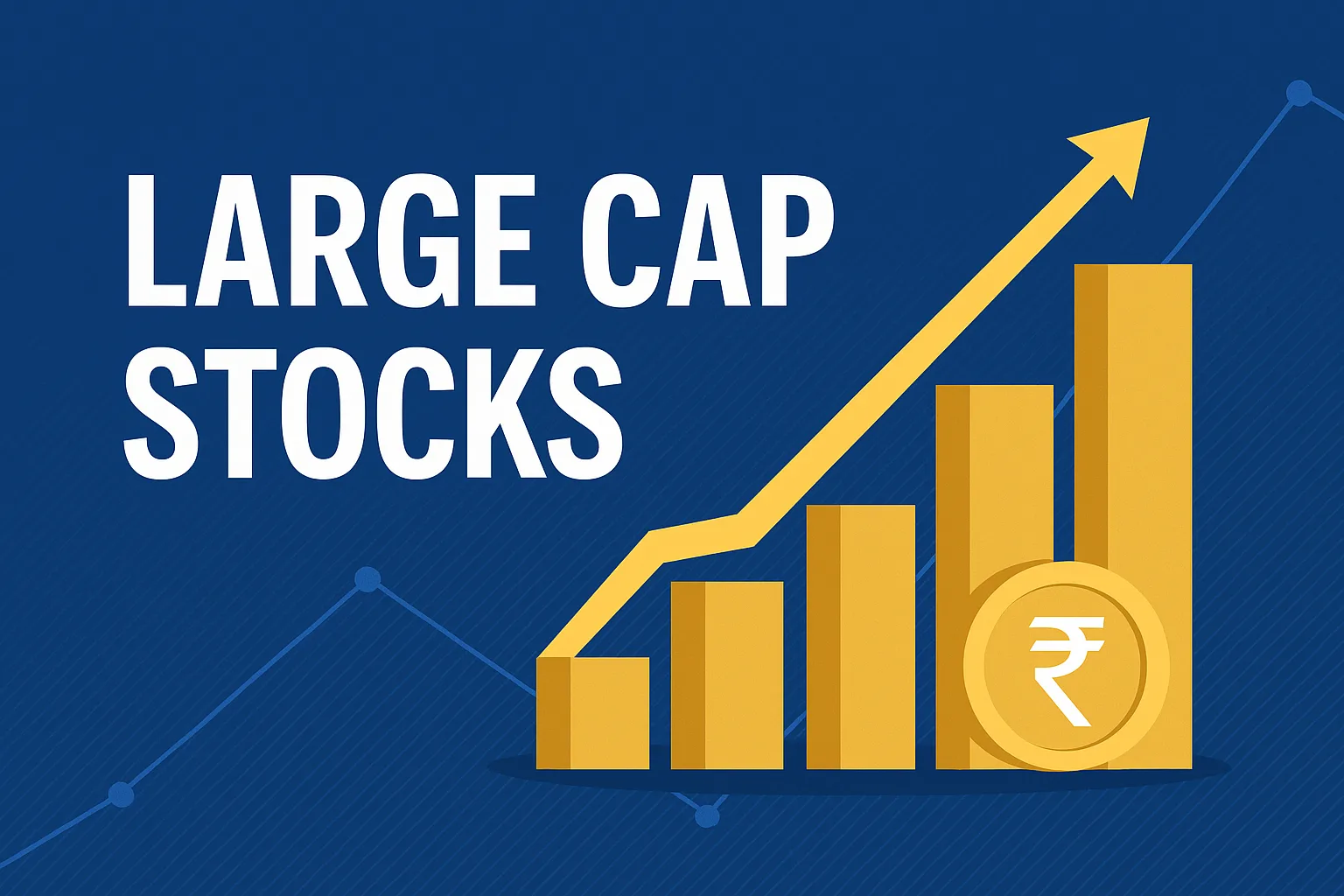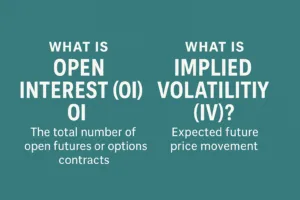If you’ve just stepped into the world of the stock market, you’ve probably heard people talk about large cap stocks. But what exactly are they? Why do investors care so much about them? Should you invest in them too?
In this article, we’ll explain everything you need to know about large cap stocks in plain, simple English. We’ll also help you understand how they work, why they’re popular, and whether they suit your investment goals.
Let’s get started!
What Does “Large Cap” Mean?
The term “large cap” comes from “large market capitalization.”
Market capitalization (market cap) is the total value of a company’s shares traded in the stock market. It’s calculated using this formula:
> Market Cap = Share Price × Total Number of Outstanding Shares
So when we say “large cap company,” we are talking about a business that is already big, stable, and well-established in the market. These companies are usually leaders in their industries, and their stocks are considered more stable compared to smaller companies.
How Are Large Cap Stocks Classified in India?
In India, the Securities and Exchange Board of India (SEBI) classifies companies based on their market capitalization:
Large Cap: Top 100 companies by market cap.
Mid Cap: 101st to 250th companies.
Small Cap: 251st and beyond.
This list gets updated every six months. So if a company grows bigger or falls behind, its category may change.
Characteristics of Large Cap Stocks
Let’s look at the key features that define large cap stocks:
1. Strong Market Presence
These companies are usually household names with nationwide or global operations. Think of firms like Reliance Industries, TCS, Infosys, and HDFC Bank.
2. Stable Performance
Because of their size and strong foundations, large cap companies generally show steady performance in the long run.
3. Regular Dividends
Large cap stocks are known for paying regular dividends to shareholders. This makes them attractive to investors looking for passive income.
4. Lower Risk Compared to Small Caps
While no stock is 100% safe, large caps are less volatile than mid and small-cap stocks. They don’t usually swing wildly with market news.
5. High Liquidity
Since these stocks are widely traded, it’s easy to buy and sell them quickly without big price changes.
Examples of Large Cap Stocks in India
Here are some well-known large cap companies listed on NSE and BSE:

These firms are known for consistent earnings and reliable operations.
Advantages of Investing in Large Cap Stocks
1. Ideal for Long-Term Goals
These stocks grow steadily over time. They may not double in a month, but they compound your wealth year after year.
2. Safe Entry for Beginners
If you’re new to investing, large caps are a great starting point. You can learn the ropes without worrying about extreme price swings.
3. Reliable During Market Downturns
During a market crash, large caps often fall less than mid or small caps. They’re more likely to bounce back quickly.
4. Portfolio Stability
Even if you like taking risks with small-cap stocks, large caps bring balance and safety to your portfolio.
Disadvantages of Large Cap Stocks
While they are considered safe, large cap stocks have a few downsides:
1. Slower Growth
Large caps already have a big share of the market. So, their growth is usually slow and steady, not explosive.
2. Less Exciting for Short-Term Traders
Traders looking for quick profits may not find large caps attractive because their price movements are usually smaller.
3. Market Sentiment Still Matters
Even large cap stocks can be affected by global events, policy changes, or company-specific news.
Who Should Invest in Large Cap Stocks?
1. Conservative Investors
If you prefer safety over high returns, large caps are your best friend.
2. Retirees and Pensioners
Because of their regular dividends and low volatility, large caps are ideal for retired individuals.
3. Long-Term Investors
If you have a long-term goal like buying a house, saving for your child’s education, or retirement planning—large caps can be a strong foundation.
How to Invest in Large Cap Stocks?
You can invest in large caps through:
1. Direct Stock Purchase
Buy shares of large cap companies through any stock broker using platforms like Zerodha, Upstox, or Groww.
2. Large Cap Mutual Funds
These funds invest only in large cap companies. Great for those who don’t want to pick individual stocks.
3. Index Funds & ETFs
Nifty 50 and Sensex include only large cap companies. Investing in these indexes is like investing in the overall market leaders.
Tips Before You Invest in Large Cap Stocks
Study the Company: Even large companies can make bad decisions. Always check financial health and management quality.
Diversify Your Portfolio: Don’t put all your money into one stock or sector.
Review Performance Regularly: Track how your investments are doing and adjust your portfolio if needed.
Stay Invested for the Long Term: These stocks reward patience, not panic selling.
Final Thoughts
Large cap stocks are like the “blue chips” of the Indian stock market. They’re reliable, stable, and ideal for building long-term wealth with low risk.
They may not always be the fastest movers, but their consistency and strength make them a valuable part of any investment portfolio.
If you’re looking for a smart and safe place to start your investment journey—or want to balance your risky bets with some stability—large cap stocks can be your solid foundation.
Disclaimer: The stocks mentioned in this article are for reference and educational purposes only. They do not constitute any buy, sell, or investment advice. Investing in the stock market involves risks. Please conduct your own research or consult a certified financial advisor before making any investment decisions.

BBW News Desk is the editorial team of BigBreakingWire, a digital newsroom focused on global finance, markets, geopolitics, trade policy, and macroeconomic developments.
Our editors monitor government decisions, central bank actions, international trade movements, corporate activity, and economic indicators to deliver fast, fact-based reporting for investors, professionals, and informed readers.
The BBW News Desk operates under the editorial standards of BigBreakingWire, prioritizing accuracy, verified information, and timely updates on major global developments.










Be First to Comment